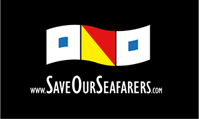Open Forum published in Nautilus
De redactie aanvaardt met dank alle commentaar op de artikels onder de rubriek “Open Forum”
La rédaction accepte avec reconnaissance tous commentaires concernant les articles sous la rubrique « Forum Ouvert »
Union anger at compromise on hours of rest
IMO CONFERENCE
ADOPTS REVISED TRAINING RULES
_________
A controversial compromise on hours of work was agreed at an International Maritime Organisation (IMO) conference held in June in Manila to update the rules on training and qualifications for the global shipping industry. The "Manila amendments" to the Standards of Training, Certification and Watchkeeping (STCW) convention and associated code are mainly aimed at catching up with technical developments since the last revision. The Manila conference followed several years' work at IMO and there was general agreement on most training and certification issues prior to the meeting.
Rod Short, executive secretary of the training college organisation GlobalMET, told The Sea that there was strong motivation at IMO to modernise. "Celestial navigation requirements were reduced and those concerning electronic navigation increased, with concern being expressed about the need for a much greater effort to ensure that watchkeepers are competent with e-navigation.
"Tanker operations training is to be brought up to date. Engineering competencies are moving more towards plant and systems operation, implying a significant rethink about how engineers are trained. Able seafarer requirements for deck and engine shifted from the International Labour Organisation to STCW. Electro-technical officer training is now mandatory, with a cross-over between marine engineering and electro-technology," he said.
There was now more emphasis on leadership and management, he added. The Manila amendments, which come into force on January 1, 2012, include a new measure to stop certificate of competency fraud and new requirements for the prevention of drug and alcohol abuse, as well as updated medical fitness standards for seafarers.
The conference also passed a large number of resolutions, including ones on: attracting new entrants to, and retaining seafarers in, the maritime profession; accommodation for trainees; and the promotion of the participation of women in the maritime industry.
More controversially, delegates at Manila agreed, at an intense round of negotiations, a series of new provisions intended to provide watchkeeping officers aboard ships with sufficient rest periods. The Manila amendments say that watchkeeping officers and ratings must have a minimum of 10 hours of rest in any 24-hour period and 77 hours in any seven-day period.
That means maximum working hours allowed will be 91 hours a week. The compromise, however, gives flexibility to allow up to 98 hours of work in a week. Up to two consecutive 98-hour working weeks will be allowed in exceptional circumstances. When that happens, however, another period of extra long hours will not be allowed for the following month.
International Chamber of Shipping secretary general Peter Hinchliffe said the organisation was very pleased that governments had responded to employers' arguments about the need for flexibility to ensure safe and efficient operations during short-term peak workloads. He added that newly strengthened mandatory hours of work recording requirements should lead to increased enforcement by port state control authorities.
However, Allan Graveson of seafarers' union Nautilus International was very unhappy at the outcome. "This shows that this industry has no regard for the long-term health of seafarers or their safety, nor the safety of life at sea or protection of the marine environment. Flexibility comes at a price, and the countries which accepted this should not be surprised when there are bodies in the sea and oil on the beaches. They should not blame the seafarer for what are entirely foreseeable events caused by working excessive hours. "It is worth noting no other form of transport or sector of industry is seeking such hours of work," he said. "It will be increasingly difficult to defend such working practices."
Speaking at the close of the conference, IMO secretary-general Efthimios Mitropoulos said there needed to be a drive to put the new rules in place. "The immediate task at hand is to promulgate the standards of maritime excellence we have just come to adopt amongst those working at the sharp end of the industry and to promote their proper implementation and enforcement through the usual means of enacting legislation and introducing enabling measures in maritime administrations and training establishments."
qqq The Sea – Issue 207 – Sept/Oct. 2010
Bold printings by the Nautilus editor



